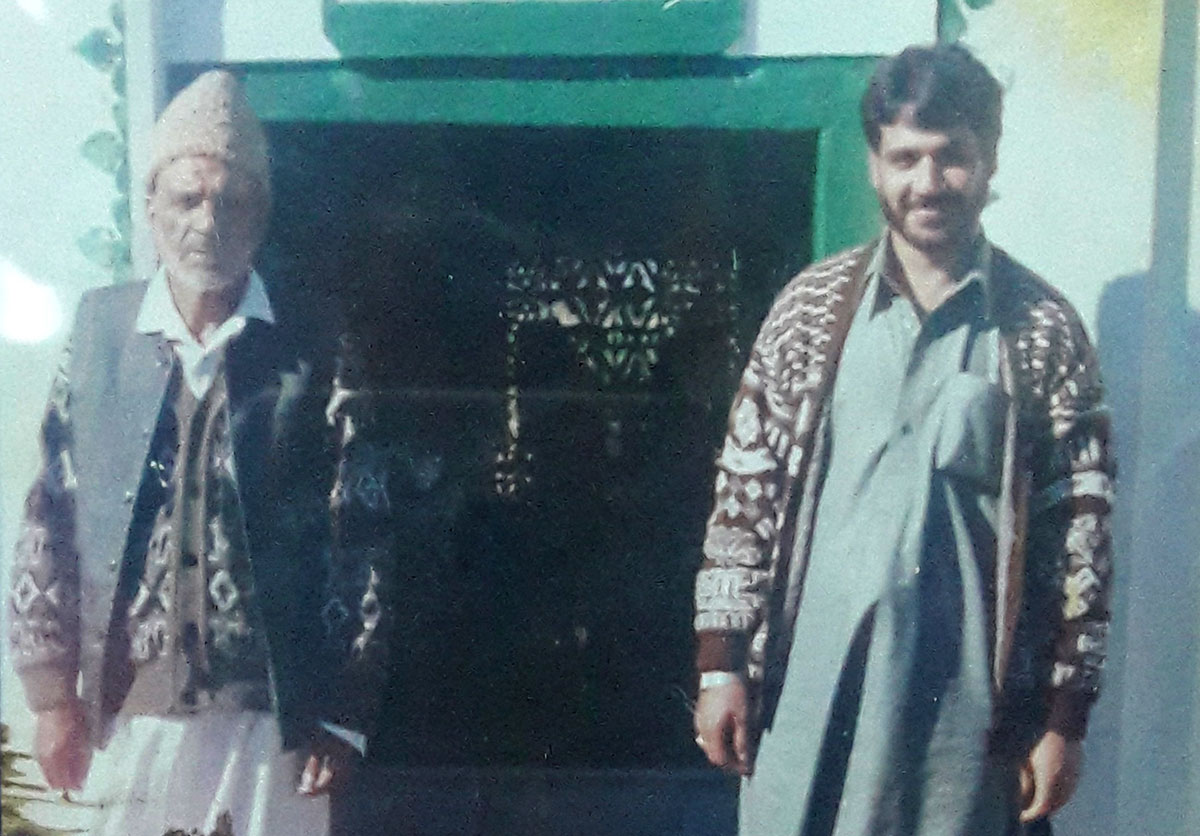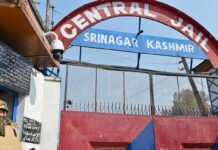After finding the situation not conducive to sustain his family, a man who availed the rehabilitation package to return home, burnt himself to death. His son, who was pursuing engineering, did not get admission forcing him to become a coppersmith to raise his father’s family, reports Hilal Shah

In 2010, the Jammu and Kashmir government announced the rehabilitation policy for the Kashmiri youth stranded in Pakistan-administered-Kashmir (PaK). Change of heart was the key to the policy aimed at helping the youth come home and live a peaceful life. Almost 400 youth availed the policy and most of them returned with the families they had raised.
Bashir Ahmad Bhukhari was one of them. He had crossed over to the other side in 1990 and stayed back. He used to live with a family in Muzaffarabad.
There, according to his family, he met Safina. A year after meeting each other, at her uncle’s home, they fell for each other and married a year later.
Bashir started living in a rented home with his family for some time and started driving a cab for livelihood. Sometime later, Safina’s family provided them with a small piece of land where he built a house.
After the rehabilitation policy was announced, a homesick Bashir decided to avail it. They took a route through Nepal to spend rest of life in Kashmir with Bashir’s family.
As soon as he reached home, Bashir was taken into custody for two days by the Kreeri police station for illegally crossing the border. “My husband promised me that we will be making a visit to PaK, every six months,” Safina said. “But he could not keep his promise.”
Finally, they started living in Kreeri, with Bashir’s brother, Nazir Ahmad, for almost a year. “We were compelled to live in a single room which was hard to manage and finally we decided to leave”, recalls Safina.
“With the savings, we had, mostly from the sale of our property in Pakistan, we bought a piece of land to construct the house,” Safina said. “Till then, we lived in a small shed.”
The couple has five daughters and a son; two among them got married – eldest daughter and a son. Soon, they started feeling the heat.
“I had passed 10th standard in Pakistan and was pursuing engineering in Peshawar University,” Faizan, 22, their son, said. “Here, I was not given admission and was asked to join the ninth standard.”
After his return, Bashir resumed his profession. He started driving a cab for a short period to sustain his family. But he was not satisfied with what he was doing.
One morning in July 2013, Bashir left home to get items from the nearby Kreeri market. Eyewitnesses said Bashir sprayed Diesel on his body and set himself on fire in front of his brother and other drivers in the centre of the Kreeri bus stand.
“His brother and other drivers watched him immolate himself”, said Safina. “While he set himself on fire, no one tried to rescue him.
“He had sprayed a bottle of Diesel on his body before reaching the spot. When he reached the bus stand, he hugged me, I was not aware about what he was going to do,” said Bashir Ahmad Sheikh, an eyewitness. “I don’t remember either it was a lighter or a match stick with which he set himself on fire; his brother and many other drivers were also there but we had no chance to rescue him as he had sprayed bottle of Diesel on his body and it did not take a second to set him ablaze.”
Bashir was taken to Sher Kashmir Institute of Medical Sciences (SKIMS) in Soura for treatment but it did not help. His body was damaged, and he succumbed to his injuries in the Intensive Care Unit (ICU) on July 23.
“Initially we were living a life of misery here as nothing was happening in our favour,” Safina said. “Bashir did not find a job to survive as he had to raise a family of seven members, which forced him to meet with death.” Safina is ailing these days.
“My father’s death has added to our problems as he was the only earning hand in our family,” regrets Faizan. “My father was the only hope who would keep us happy and serve us in miserable conditions.”

Later, Faizan started a small readymade shop in the locality to take care of the family, but, after a short period of time, I gave up.
“I used to go with a local bus driver as a conductor for almost a year,” Faizan said. “In 2015, I used to go to my neighbours’ house to learn copper designing and it took me almost one year to get trained there. In 2016, I started my own business at my home.” Unlike readymade garments, he has sustained copper designing.
“Right now, my two sisters are doing the same job with me,” Faizan said.
“In our single-storey house, we have kept a roof over the slab covered by steel where we are doing our business. We remain busy with our job for the major portion of the day”, Faizan said.
“We only design the copper items; we get material from the copper dealers and design over it, later we return to the supplies who market them.
“I have spent more than Rs 20000 to get a passport for my mother and sisters but I always return empty-handed,” Faizan said. “We want to go back but we are compelled to stay here.”
With no advantage of the rehabilitation policy extended to them, the only hope left with the family was to return to PaK. That option is not available to them.
“We are living a well-off life here now but we only want that the road should be opened so that we can meet our relatives,” Bushra Bashir, the eldest of Safina’s daughters said. “We need the state subject rights.”
She said their family mourned at home after their maternal uncle died in a road accident, last year. “We were not allowed to even mourn the death by visiting PaK,” she said.
Safina’s story is one of more than 380 families who had accepted Kashmir as their home after returning under the rehabilitation policy in 2010. There are suicides of women as well.















